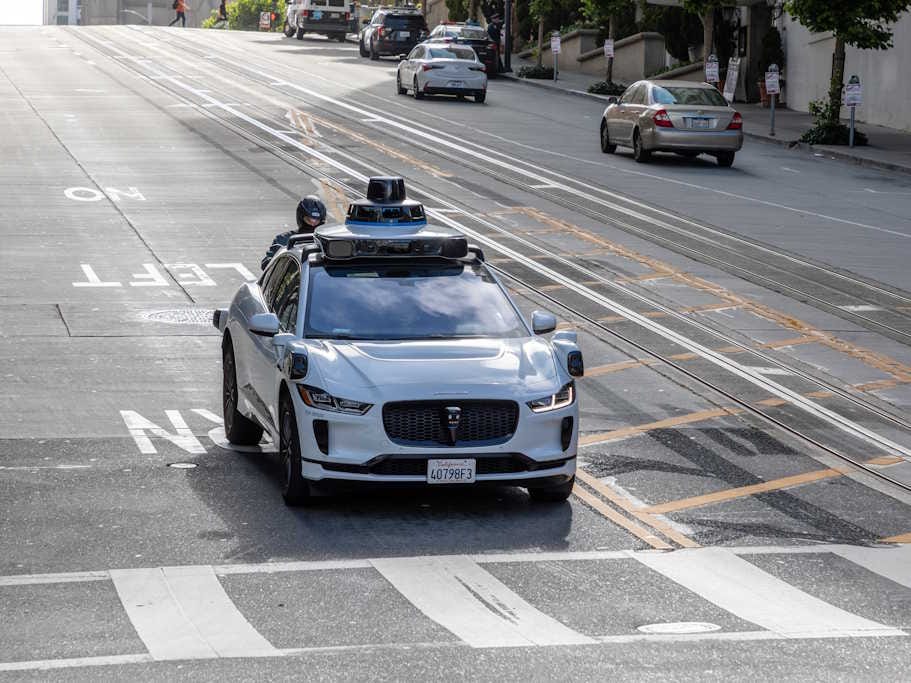Tech can fix most of our problems (if we let it)
Humans are clever animals. We should make full use of that advantage.

The other day, I was invited to a dinner with some foundation people, technologists, and journalists, to talk about AI. At dinner, the topic of AI-powered disinformation came up, and someone suggested that AI itself could provide a solution. One of the guys at the dinner thundered: “We can’t just tech our way out of the problem!”.
Until then I had hung back and stayed out of the conversation, preferring to listen to the arguments of people who knew more about the topic than I did. But the bald assertion that there’s no technological solution to the disinformation problem bothered me, especially because it was presented without any supporting evidence or rationale. I reminded him that Costello et al. (2024) found that just talking to an AI helped reduce belief in conspiracy theories:
Widespread belief in unsubstantiated conspiracy theories is a major source of public concern…Here, we…ask whether it may be possible to talk people out of the conspiratorial “rabbit hole” with sufficiently compelling evidence…
Across [our] two experiments, 2190 Americans articulated—in their own words—a conspiracy theory in which they believe, along with the evidence they think supports this theory. They then engaged in a three-round conversation with the LLM GPT-4 Turbo, which we prompted to respond to this specific evidence while trying to reduce participants’ belief in the conspiracy theory (or, as a control condition, to converse with the AI about an unrelated topic)…
The treatment reduced participants’ belief in their chosen conspiracy theory by 20% on average. This effect persisted undiminished for at least 2 months; was consistently observed across a wide range of conspiracy theories, from classic conspiracies involving the assassination of John F. Kennedy, aliens, and the illuminati, to those pertaining to topical events such as COVID-19 and the 2020 US presidential election; and occurred even for participants whose conspiracy beliefs were deeply entrenched and important to their identities. Notably, the AI did not reduce belief in true conspiracies. Furthermore, when a professional fact-checker evaluated a sample of 128 claims made by the AI, 99.2% were true, 0.8% were misleading, and none were false. The debunking also spilled over to reduce beliefs in unrelated conspiracies, indicating a general decrease in conspiratorial worldview, and increased intentions to rebut other conspiracy believers.
In fact, this is just one possible way that AI could help fix the disinformation problem. AI could also act as a scalable content moderator — what I’ve referred to as a “Digital Walter Cronkite”. Or AI assistants could help people figure out when someone online is lying to them.
Of course, we don’t yet know if those solutions will work at scale, especially if AI gets leveraged to produce more disinformation in the first place. Nor do we know how to get regular people to use the AI solutions in the real world — you can’t just order everyone to talk to ChatGPT every time they hear a conspiracy theory. But while technological solutions are still speculative, the research literature is encouraging, and it makes absolutely no sense to dismiss the possibility that AI will eventually function more as an engine of truth in our society than as an engine of lies.
In fact, I’ve been hearing versions of that guy’s assertion — “We can’t just tech our way out of the problem!” — applied to any number of problems over the years. Whether it’s climate change, Covid, obesity, traffic accidents, or drug overdoses, smart people — usually on the political left — keep telling me that the problem will only be fixed by social change, political activism, and wise policymaking, rather than by mad scientists and greedy techbros inventing some nifty new gadget.
And again and again, they’ve been wrong. Take Covid, for example. Early in the pandemic, a lot of people were adamant that the solution would come from non-pharmaceutical interventions like lockdowns, social distancing, frequent testing, and masking. I myself was enthusiastic about this effort, and even made a website to encourage contact tracing, in the hopes that this could help contain the virus. That effort failed, for many reasons that I won’t go into now. Overall, NPIs slowed the rate of transmission, but this was only a temporary solution, since NPIs were unable to stamp out the virus anywhere. The actual long-term solution was a technology — namely, vaccines, especially mRNA vaccines.
This experience deeply affected me. It made me less optimistic about the “let’s all get together and make change happen” type of solution to social problems, and more optimistic about the “let’s invent a technology that just fixes it” kind. Here’s what I wrote back in late 2020, while the pandemic was still raging:
In the last decade, we’ve basically been taught to deride “solutionism” — while Silicon Valley techbros were bending their genius toward figuring out ways to sell more ads or lower taxi drivers’ wages, inequality was running rampant and parents were struggling to feed their kids. Instead of trusting wizardry to solve the world’s problems, we were supposed to place our faith in politics, in mass action, and in cultural change.
So it’s small wonder that when COVID hit, I got tweets like the following:
Except then consider what happened with COVID. Our leaders failed to fight the virus effectively, and the President actively sabotaged containment efforts. Culturally, we screeched our heads off about masks and herd immunity and “just the flu” and beach parties and school closings and bar closings and restaurant closings and dorm closings and so on and so forth. We didn’t implement strict lockdowns and we protested against lockdowns and we didn’t even obey the half-assed lockdowns we did implement. We became one of the planet’s worst-hit countries, despite having the planet’s most expensive health care system. We died in the red states, we died in the blue states. We died in droves, in hundreds of thousands. Collectively, as a society, we wrung our hands and ran in circles and screeched and died and screeched and died and screeched and died until scientists made vaccines against the virus.
So I guess what I’m saying is, sometimes technological solutionism has its merits. Even if you aren’t ready to embrace that idea, this COVID episode should at least make you question the 2010s consensus that technology is a sideshow compared to social movements.
That post was about climate change, which is another critical problem where technological solutions are going to win where social solutions failed. Climate politics has been marginally successful in northern Europe, but has basically failed (or hasn’t even been tried) everywhere else in the world, resulting in only very minor emissions reductions. Americans simply don’t take the climate issue very seriously at all.
And yet thanks to advancements in solar power, batteries, and other technologies, clean energy is now generally cheaper than fossil fuel energy. Now China, out of pure economic self-interest, is making and selling those technologies to the whole world:
Thanks to innovation in solar, wind, and batteries, China — the world’s biggest emitter of greenhouses gases by far — is now seeing its emissions fall. That’s a far more impressive accomplishment than anything that climate politics has been able to achieve in the UK, Germany, and the other smallish countries that have heeded its call. In fact, if climate activism did have a big effect, it was by raising the salience of the issue back in the 1980s and 1990s, and convincing technologists to spend their time and money on developing green energy tech.
So technology beat Covid, is on its way to stopping climate change, and may end up helping to solve the problem of online misinformation. What else can tech fix? In fact, there’s a good chance that tech may soon end up solving America’s life expectancy problem.




